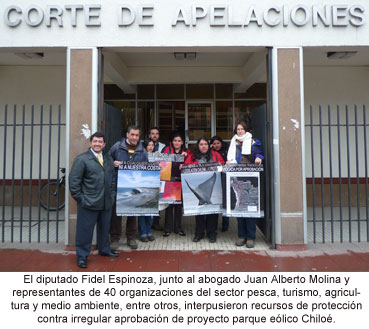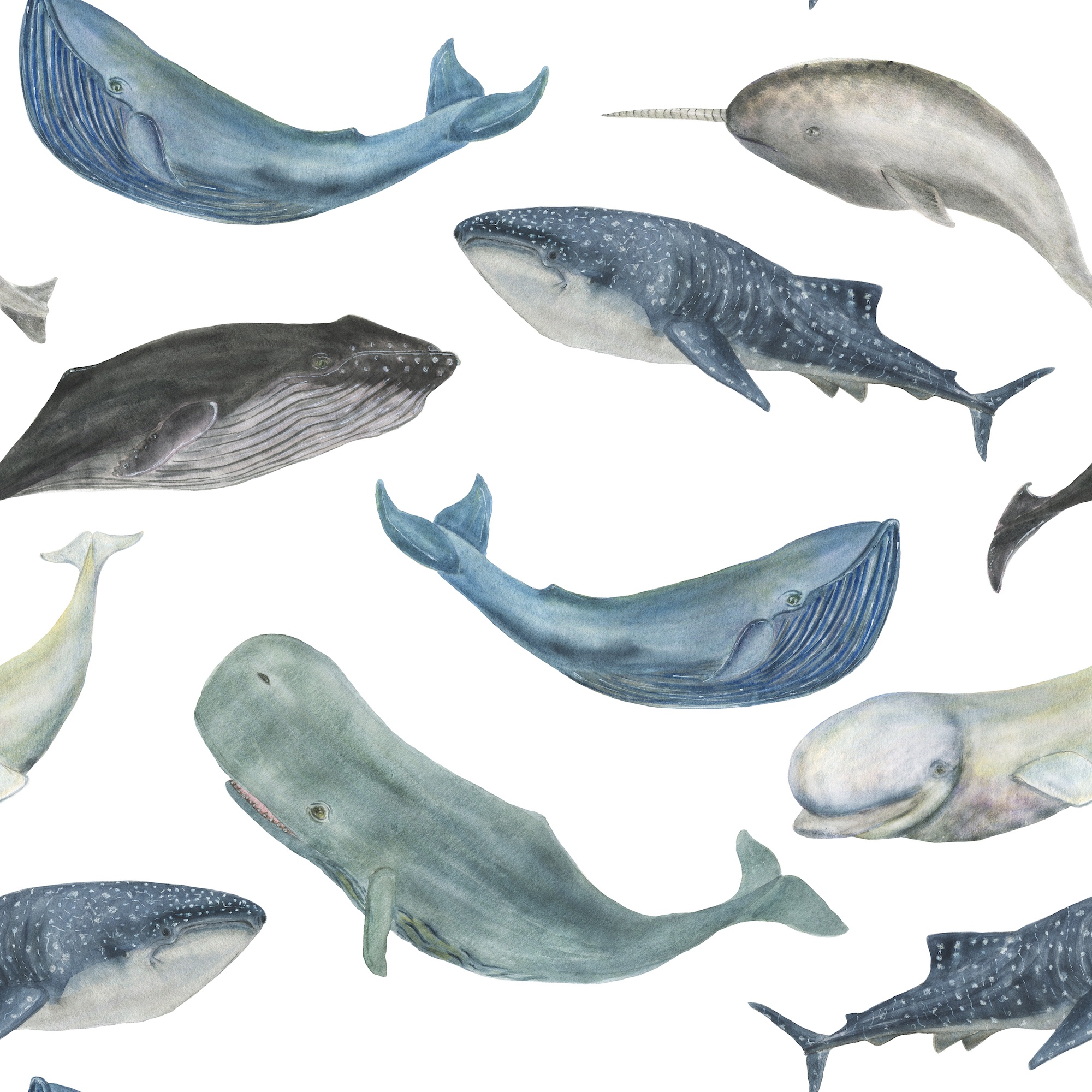Santiago de Chile, August 29th, 2011 – Chilean deputy Fidel Espinoza along with more than forty organizations presented last Friday several legal appeals in the Court of Puerto Montt against the irregular approval of the mega wind farm project “Parque Eolico Chiloe” without an Environmental Impact Assessment.
The project, consisting of 56 towers of 300 feet of height, would be located in the coastline of Mar Brava, Ancud, Chiloe Island (southern Chile), impacting vulnerable and protected areas and threatening several species that are protected under national and international legislation. These are some of the reasons why parliamentarians as well as productive and non-profit organizations have called the government to comply with the law and conduct an Environmental Impact Assessment.

The appeals seek to invalidate the irregular decision taken by the Environmental Commission of Los Lagos region and stop the construction of the mega wind farm project until a proper investigation is conducted. The process of approval by the company – Ecopower S.A. – and the Environmental Commission presents concerning vicious and inexcusable omissions that makes the project the most evident example of abandonment of duties by the current environmental authority. The project was approved on by a simple Environmental Impact Declaration, ignoring the national law which requires the conduction of an Environmental Impact Assessment (EIA).
Appeals Approved by Court of Puerto Montt
The Appeal Court of Puerto Montt admitted on Saturday the appeals and granted a five day period to the company (Ecopower S.A) and the Environmental Commission of Los Lagos region to explain the reasons for the approval of the project without an EIA.
This is not the only case in Chile where energetic projects are approved without complying with national law. In order to call the attention of the authorities in charge, on August 17th the vice chairman of the Chilean Senate, Juan Pablo Letelier, along with senator Alejandro Navarro, deputies Fidel Espinoza and Enrique Accorsi and representatives from civil society, denounced these cases and requested the creation of an investigation committee.
Although Renewable Non Conventional Energy projects, like windfarms, could contribute to decrease the conflicts generated by the generation of energy in Chile, they need to comply with the law. In the case of Parque Eolico Chiloé, the location of the project will impact sensitive areas, affect protected species, destroy unique archeological sites and threaten productive activities like artisanal fishery and the increasing community based tourism in one of the areas with more potential in the country to consolidate a responsible whale watching industry.
Barbara Galletti, president of Centro de Conservacion Cetacea of Chile affirmed, “We are confident that the judiciary power will request authorities to comply with national legislation and require the company to conduct an Environmental Impact Assessment”. In particular she highlighted the possible impacts on the most important population of blue whales in the southern hemisphere that lead the Scientific Committee of the International Whaling Commission to make a strong recommendation to the government of Chile to conduct an EIA and relocate the project farther from the coastline. However the Environmental Commission of Los Lagos region completely ignored this information and irregularly approved the construction of the project.
Out side of the Court Deputy Fidel Espinoza stated “We are not against wind farms but this project has trespass every limit and did not respect the rights of the people that live in the area, like fishermen, farmers and tourist operators whose lives will be negatively affected by the location of this project”. Regarding the irregular approval of the project , Espinoza concluded, “this type of projects can not be imposed without conducting and environmental impact assessment because it excludes the opinion and participation of the people that will be affected by the project”.



